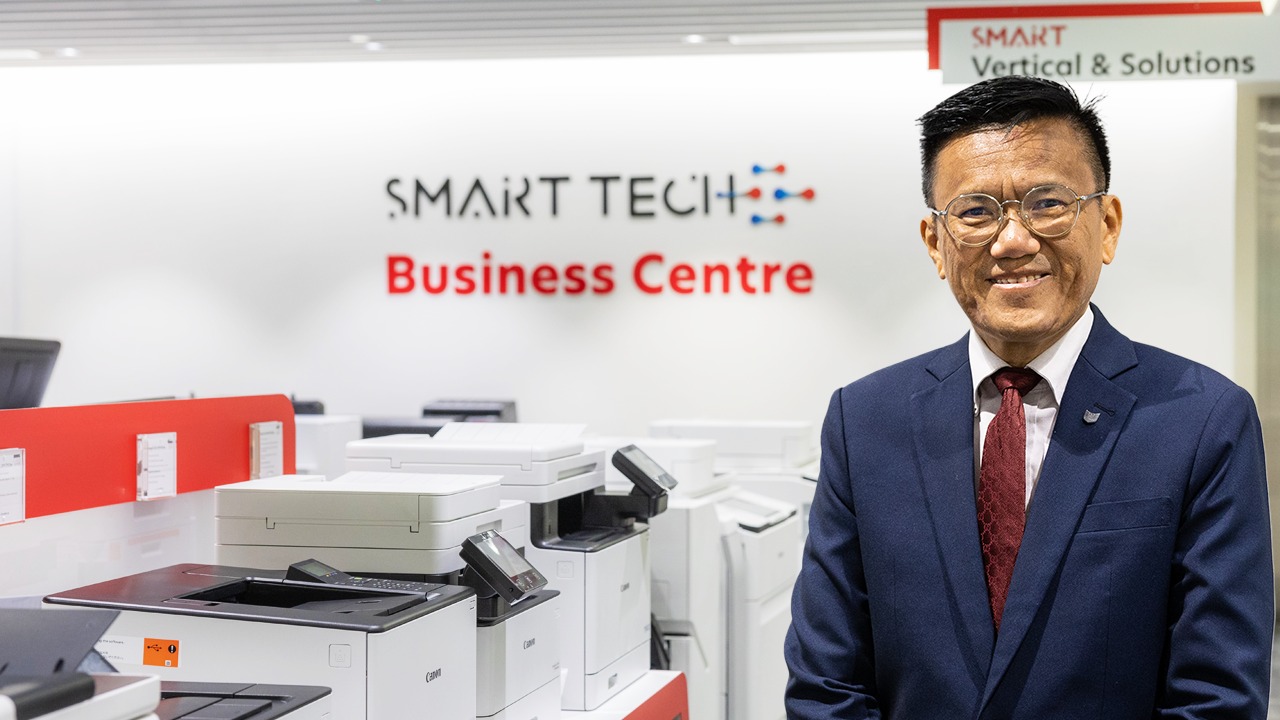Smart Tech with Mr Andrew Koh, Head of Singapore Operations Group - Business Insight
The Future of Work with Canon’s Smart Tech: An Interview with Mr. Andrew Koh

The pandemic has taught us many lessons — amongst them, the importance of staying agile and cultivating resilience in the face of an increasingly volatile world.
That is why Canon recently unveiled Smart Tech: A strategic vision aimed at helping businesses navigate the post-pandemic landscape.
What is Smart Tech and how does it impact the future of work? We speak to Mr. Andrew Koh, Head of Singapore Operations Group, Canon Singapore, to find out.
Can you share with us what Smart Tech is about?
Smart Tech is the culmination of Canon’s innovative work in the digital realm. It represents the diverse array of solutions we have to empower businesses, enhance productivity and prepare them for the future of work.
We launched this initiative to help businesses adapt and thrive in the post-pandemic world — a fragile landscape that’s fraught with uncertainties. And we do that by focusing on three main pillars of technologies:
- Smart Workplace: Where we digitalise traditional processes and make work from anywhere simple with smart workspace solutions.
- Smart Vertical: Where we automate and streamline complex industry-specific operations with industry-tailored solutions.
- Smart Surveillance: Where we protect businesses with cloud video surveillance and state-of-the-art data analytics.
What is the future of work going to be like?
The future of work will be significantly shaped by three factors: Technological advancements, changing demographics and evolving societal needs.
Automation, artificial intelligence (AI) and robotics will reshape the way we work — and redesign the types of jobs available. Human workers will get to focus on more complex and creative work as routine and repetitive tasks become automated, enhancing productivity and efficiency in various industries.
AI will also play a crucial role in improving productivity, decision-making and data-analysis across different sectors. Remote teams will also be able to collaborate seamlessly regardless of their physical locations, leading to improved communication and productivity.

Smart Tech is inevitably going to bring about changes in the workplace. What advice would you give to business leaders who wish to transition their workforce into a digital future?
Start by fostering a digital mindset throughout your organisation. Encourage a culture of curiosity, adaptability and continuous learning. And help your employees understand the benefits and opportunities that digital transformation can bring to their roles and the organisation.
As business leaders, we have to provide the resources and infrastructure needed to support digital transformation. That includes upgrading your hardware, software and network capabilities. Cloud-based solutions are a good starting point given their scalability, flexibility and cost-effectiveness.
Most importantly, we have to recognise that digital transformation can be disruptive and may encounter resistance from employees. It’s therefore important to implement change management strategies so potential concerns can be addressed to ensure a smooth transition. Involve your employees in the process, listen to their feedback and create channels for open communication.
We have to remember that digital transformation is an ongoing process. Organisations need to constantly stay agile and adaptable to evolving technologies and market dynamics. To enable a successful transition into the digital future, a holistic approach that encompasses technology, people, processes and culture is essential.
Can you tell us more about the new Canon’s Smart Tech Business Centre?
Canon’s Smart Tech Business Centre is a modern workspace designed to bring the future of work to life.
It’s a space where visitors get to experience first-hand how our smart workplace solutions simplify business operations — and enable them to work efficiently and collaboratively in a blend of remote, in-office and hybrid work environments.
We welcome you to visit and experience for yourself how our transformative technologies and solutions are shaping the future of work!
Follow Canon Singapore on Facebook and LinkedIn for more business insights!
